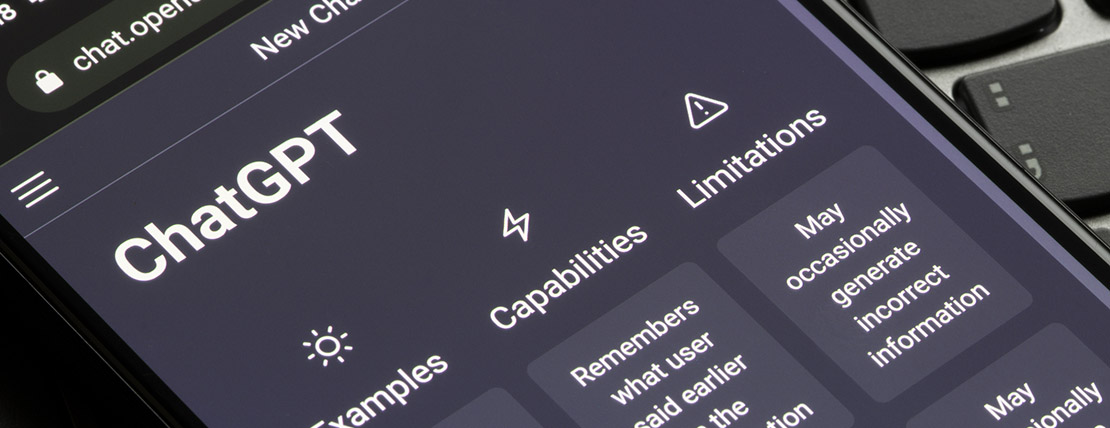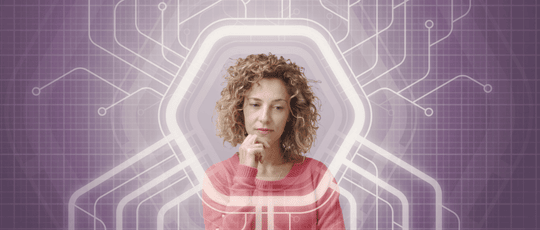- A potential game changer. ChatGPT’s sophisticated algorithm could be leveraged in the HR and rewards space to move the profession forward and deliver rewards in a different way.
- Potential use cases. ChatGPT could be used initially to assist in daily compensation-related work including generating reports, aggregating market data, evaluating the drivers of pay equity analysis and more.
- Proceed with caution. The AI shouldn’t be used, initially at least, to conduct market analysis, implement compensation changes, provide legal guidance, or personalized advice. Chief among the concerns within the technology is perpetuating bias in decision making, especially when it comes to matters of gender pay and pay equity for example.
- Disruption is probable. The disintermediation ChatGPT creates could generate new HR and rewards roles and those who want to progress may have to put aside transactional reward and remain hyper-focused on value add, strategic plan design and tailor-made stuff that comes from M&A and new commercial strategies.
Whenever a technological innovation occurs, the natural inclination for businesses is to determine how it can be best leveraged to improve efficiencies and create a competitive advantage.
Enter ChatGPT, the viral chatbot created by Microsoft-backed OpenAI, that currently has competitors in the artificial intelligence (AI) space scrambling and top organizations contemplating its potential. Early reviewers consider the algorithm revolutionary, and the use cases are seemingly infinite across industries, which is why HR and rewards leaders around the globe are already in the preliminary stages of discussion to strategize its potential impact on the space.
“Rewards is stuck in the past. We’ve been talking about [the need for innovation] for 30 years and our profession is very slow to adopt change, so something like this is a game changer,” said Michael Piker, global DE&I and reward director at Flutter Entertainment, Plc, which operates sports betting, gaming and entertainment brands. “It’s an elegant [accelerator] to influence rewards professionals to deliver reward in a different way, and I think it’s really healthy for the profession — it’s about time.”
The chatbot is considered to be at the forefront of the next wave of technological innovation: generative AI. The algorithm can take a simple query from users and generate, with shocking speed and precision at times, quintessential information or suggestions. The machine-learning technology can generate articles, essays, jokes and even poetry in response to prompts.
Thus, it’s easy to imagine the type of grunt work it could theoretically take off the plates of those in the HR and rewards profession.
Potential Use Cases for Rewards
Marta Turba, vice president of content strategy at WorldatWork, along with Piker, envisions AI applications assisting in daily compensation-related work, including generating reports, aggregating market data, evaluating the drivers of pay equity analysis and more.
“ChatGPT offers a game-changing opportunity for rewards professionals by streamlining foundational tasks such as communications, presentations and planning,” Turba said. “The real advantage is that AI has the power to free up valuable time for higher level work, enabling us to focus on strategic decision making and program design. Ultimately, this tool may help elevate the role of HR and rewards in the organization.”
“If you’re trying to create an end-to-end incentive plan design, that would be a stretch,” Piker added. “But can it give you context and content to design a plan? Absolutely. Can it actually execute a plan design? Probably not.”
From a broader HR perspective, ChatGPT could reasonably generate job descriptions, standard operating procedures, organizational communications and training materials and provide customer service support.
Given the nature of machine learning technology, ChatGPT will become more proficient over time as more inputs occur, which expands its capabilities. This, Piker said, could disrupt traditional reward roles within organizations.
“The evolution of AI will expand to reward design, pay equity analysis, plan creation — what I call the advanced levels — and it could potentially be a game changer in disintermediating what reward professionals do and do not do,” he said. “
For example, it could potentially reduce the need for transactional rewards roles, resulting in only the most senior level incentive design to being done in house by a person, Piker said.
In the more immediate future, however, Turba emphasizes that humans should still be responsible for innovating and designing rewards.
“ChatGPT is a valuable asset for HR professionals, but it’s important to note that it supplements human decision-making, it doesn’t replace it,” she said. “While the technology may support and enhance decision-making processes, it’s not yet advanced enough to drive all decisions. The ‘H’ in HR remains essential.”
Proceed with Caution
Excitement around the AI technology abounds with HR thought leaders extolling its enormous potential. But, as with most things in life, moderation is prudent and initial application to the rewards space remains limited.
Even OpenAI’s CEO and founder Sam Altman tweeted a caveat in December of the company’s brand-new product:
“ChatGPT is incredibly limited, but good enough at some things to create a misleading impression of greatness. It’s a mistake to be relying on it for anything important right now. It's a preview of progress; we have lots of work to do on robustness and truthfulness.”
With this in mind, the tool shouldn’t be used, initially at least, to conduct market analysis, implement compensation changes, provide legal guidance or offer personalized advice. Chief among the concerns within the technology is perpetuating bias in decision making, especially when it comes to matters of gender pay and pay equity for example.
“Bots are theoretically gender neutral, but AI is often developed by men, and there’s subliminal bias in the coding and algorithms and expressions that differ by gender, culture which we need to be cognizant of,” Piker said. “If you follow that logic, you could see how a female engineer and male engineer code differently and therefore, the way machine learning evolves through continual application in rewards could be a potential bias in itself.”
Ultimately, ChatGPT represents a watershed moment in AI technology, as it has the potential to streamline numerous HR and rewards processes. Yet, as with any innovation, there are likely to be hiccups along the way and humans will be responsible for mitigating those.
Going forward, Piker said professionals who begin focusing on value-add potential over transactional rewards are best suited to capitalize on this technology.
“This disintermediation generates potentially new roles. Those who want to progress may have to put aside transactional rewards and remain hyper-focused on value add, strategic plan design and tailor-made stuff that comes from M&A and new commercial strategies,” he said. “Change is inevitable and potentially roles will be eliminated, but people who can pivot and are able to reinvent themselves will remain impactful to the business.”
Editor’s Note: Additional Content
For more information and resources related to this article see the pages below, which offer quick access to all WorldatWork content on these topics:








